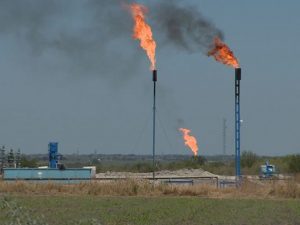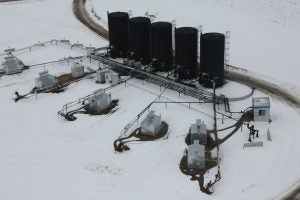 Previously published in Shale Magazine
Previously published in Shale Magazine
By Colin Leyden and Scott Anderson
A remarkable thing happened at the Texas Railroad Commission these past few weeks. Throughout the contentious debate over proration, a growing chorus of voices on both sides was calling on the commissioners to address flaring — an incredibly wasteful, environmentally damaging practice that has been giving producers a black eye for years.
During the epic 10-hour proration hearing on April 14, it wasn’t just environmental and health groups banging the drum on flaring. Large and small producers (both for and against proration), mineral rights groups and investors all called for action on flaring. So while proration may be off the agenda for now, the need and desire to address flaring lives on.














